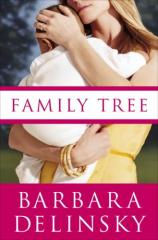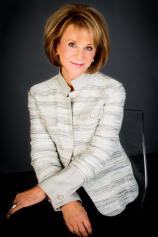Reading Group Guide
Discussion Questions
Family Tree

1. What were your initial theories about Lizzie’s ancestors? Did you ever doubt Dana’s fidelity?
2. How would you have reacted if you had experienced Dana and Hugh’s situation? How would your circle of friends and coworkers have reacted?
3. Discuss the parallel stories woven throughout the novel, including Dana’s painful reunion with her father, Ellie Jo’s secret regarding her husband’s other marriage, and Crystal’s paternity case against the senator. What are the common threads within these family secrets? What ultimately brings healing to some of the parties involved?
4. Crystal’s dilemma raises timely questions about the obligations of men who father children out of wedlock. Are Senator Hutchinson’s obligations to Jay the same as Jack Kettyle’s obligations to Dana? Should men always be financially obligated to their children, regardless of the circumstances? If so, what should those financial obligations be?
5. Why is it so difficult for Dana to feel anything but anger toward her father? In your opinion, did he do anything wrong? How does she cope with the shifting image of her mother?
6. What is the root of Hugh’s reaction in the novel’s initial chapters? Is he a racist? Is he torn between loyalties? Does he trust his wife?
7. Is your own ancestry homogenous? If not, what interesting or ironic histories are present in your ancestry? Do you believe it’s important to maintain homogeneity in a family tree? If you were to adopt a child, what would be your main criterion in selecting him or her?
8. Discuss the many differences between Dana’s and Hugh’s families. What drew Dana and Hugh to each other? To what extent is financial power a factor in shaping their attitudes toward the world? What common ground existed despite their tremendous differences in background?
9. What accounts for the universal fascination with genealogy? Should a person be lauded for the accomplishments of an ancestor, or snubbed for the misdeeds of one? Is genealogy a predictor?
10. In chapter 23, Eaton voices his frustration by shouting questions at the portraits of his parents. How might they have responded to his questions had they lived to see the arrival of Lizzie?
11. What should Dana and Hugh learn from the experience of Ali’s parents? What would the ideal school for Lizzie be like? What does Ali’s story indicate about integration?
12. Recent developments in DNA mapping have made it possible to discover not only lineage (as was the case for the biracial descendents of Thomas Jefferson) but also many general geographic details about one’s ancestry. If you were to undergo such testing, what revelations would please you? What revelations would disappoint you?
13. Discuss Eaton’s “reunion” with Saundra Belisle. Were their youths marked by any similarities, despite the fact that they lived in distinctly different worlds?
14. What role does location play in Family Tree? Would the story have unfolded differently within the aristocracy of the South, or in a West Coast city?
15. What does Corinne’s story reveal about the false selves we sometimes construct? Who are the most authentic people you know? Who in your life would stand by you after a revelation like Corinne’s?
16. Does Eaton’s history demonstrate the ways in which racism has waned in recent generations, or the ways in which very little has changed?
17. Consider whether the issues at the center of Family Tree manifest themselves in your life. Is your neighborhood racially integrated? How many people of color hold executive positions at the top companies in your community? Is there a gulf between the ideal and the reality of a color-blind society in 21st–century America?
Family Tree
- Publication Date: February 6, 2007
- Genres: Fiction
- Hardcover: 368 pages
- Publisher: Doubleday
- ISBN-10: 038551865X
- ISBN-13: 9780385518659








